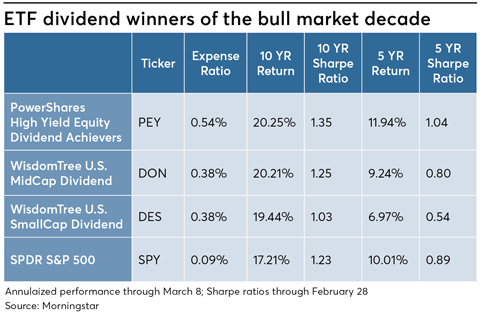
An outstanding loan is the amount of securities held in margin accounts by your broker. The original price paid for the security is the initial loan value. The value of your assets and your current cash balance will determine how it changes each day. Margin calls may be inevitable in some cases. This article will provide information on the risks of margin calls and regulations for margin accounts. To ensure that your investment account is protected from margin calls, learn about the basics.
Margin accounts regulations
To make a sale, a broker must meet certain requirements when investing in securities on margin. A customer must have at least 25% equity in their account. This is equal to the value of the security. To maintain account balance, the brokerage may have to ask the customer for additional funds. This is called a Margin Call and can lead to the broker liquidating the customer’s securities.

Minimum equity
If you use a margin account to buy securities, it is important that you understand the minimum equity requirement. For example, if the closing price of an individual stock is $60, you need to have $15,000 equity to buy more. You should not dispose of any securities that are not in your account's equity. TD Ameritrade rounds up its minimum equity requirement for securities held in margin accounts to the nearest whole number.
Loan repayment schedule
A margin account gives you the option of using a loan to purchase and sell securities. The collateral for the loan is the securities in your account. If the equity you have in the account falls in value, you may need to sell it to cover the loss. Margin accounts should only be considered for high net worth investors who are well-versed in the market. This is what you need to know about margin accounts.
Risk of margin calls
The risk of margin calls on securities held by a broker can be mitigated by diversifying your portfolio and monitoring your balance carefully. While volatile securities can trigger margin calls, they are also more susceptible to sudden changes in maintenance margin requirements. Inverse correlations are a good way to reduce risk, but they can be volatile, especially during market turmoil. It is crucial to maintain a close eye on your accounts and devise a plan to repay in the event that you are required to make a margin call.

Transferring margin between brokerage firms
When you transfer your margin to another brokerage firm, you will need to verify your account information against the records of the new company. Ask about delays or other issues that could delay the transfer. Find out if the new firm accepts margin accounts, as well as whether they have minimum margin requirements. If they allow margin accounts, you can start trading immediately. There are potential pitfalls to avoid, including losing all of the margin.
FAQ
How do I choose an investment company that is good?
Look for one that charges competitive fees, offers high-quality management and has a diverse portfolio. The type of security in your account will determine the fees. Some companies have no charges for holding cash. Others charge a flat fee each year, regardless how much you deposit. Others charge a percentage of your total assets.
You also need to know their performance history. If a company has a poor track record, it may not be the right fit for your needs. Companies with low net asset values (NAVs) or extremely volatile NAVs should be avoided.
You should also check their investment philosophy. An investment company should be willing to take risks in order to achieve higher returns. If they aren't willing to take risk, they may not meet your expectations.
Who can trade on the stock exchange?
The answer is everyone. However, not everyone is equal in this world. Some have greater skills and knowledge than others. They should be rewarded for what they do.
However, there are other factors that can determine whether or not a person succeeds in trading stocks. For example, if you don't know how to read financial reports, you won't be able to make any decisions based on them.
These reports are not for you unless you know how to interpret them. You must understand what each number represents. You should be able understand and interpret each number correctly.
You'll see patterns and trends in your data if you do this. This will enable you to make informed decisions about when to purchase and sell shares.
And if you're lucky enough, you might become rich from doing this.
What is the working of the stock market?
By buying shares of stock, you're purchasing ownership rights in a part of the company. A shareholder has certain rights. A shareholder can vote on major decisions and policies. The company can be sued for damages. He/she may also sue for breach of contract.
A company cannot issue any more shares than its total assets, minus liabilities. This is called capital adequacy.
A company with a high capital sufficiency ratio is considered to be safe. Companies with low ratios of capital adequacy are more risky.
Why is a stock called security?
Security is an investment instrument, whose value is dependent upon another company. It could be issued by a corporation, government, or other entity (e.g. prefer stocks). The issuer promises to pay dividends and repay debt obligations to creditors. Investors may also be entitled to capital return if the value of the underlying asset falls.
What is a bond?
A bond agreement between two parties where money changes hands for goods and services. It is also known as a contract.
A bond is typically written on paper, signed by both parties. The bond document will include details such as the date, amount due and interest rate.
When there are risks involved, like a company going bankrupt or a person breaking a promise, the bond is used.
Sometimes bonds can be used with other types loans like mortgages. This means that the borrower has to pay the loan back plus any interest.
Bonds can also help raise money for major projects, such as the construction of roads and bridges or hospitals.
A bond becomes due when it matures. This means that the bond's owner will be paid the principal and any interest.
Lenders are responsible for paying back any unpaid bonds.
How are shares prices determined?
Investors who seek a return for their investments set the share price. They want to make a profit from the company. They then buy shares at a specified price. The investor will make more profit if shares go up. If the share price falls, then the investor loses money.
An investor's main objective is to make as many dollars as possible. They invest in companies to achieve this goal. This allows them to make a lot of money.
What is a Reit?
An entity called a real estate investment trust (REIT), is one that holds income-producing properties like apartment buildings, shopping centers and office buildings. These publicly traded companies pay dividends rather than paying corporate taxes.
They are similar to a corporation, except that they only own property rather than manufacturing goods.
Statistics
- The S&P 500 has grown about 10.5% per year since its establishment in the 1920s. (investopedia.com)
- Our focus on Main Street investors reflects the fact that American households own $38 trillion worth of equities, more than 59 percent of the U.S. equity market either directly or indirectly through mutual funds, retirement accounts, and other investments. (sec.gov)
- Even if you find talent for trading stocks, allocating more than 10% of your portfolio to an individual stock can expose your savings to too much volatility. (nerdwallet.com)
- "If all of your money's in one stock, you could potentially lose 50% of it overnight," Moore says. (nerdwallet.com)
External Links
How To
How to invest in the stock market online
The stock market is one way you can make money investing in stocks. There are many ways to do this, such as investing through mutual funds, exchange-traded funds (ETFs), hedge funds, etc. The best investment strategy is dependent on your personal investment style and risk tolerance.
To be successful in the stock markets, you have to first understand how it works. This includes understanding the different investment options, their risks and the potential benefits. Once you know what you want out of your investment portfolio, then you can start looking at which type of investment would work best for you.
There are three main categories of investments: equity, fixed income, and alternatives. Equity refers a company's ownership shares. Fixed income refers to debt instruments such as bonds and treasury notes. Alternatives are commodities, real estate, private capital, and venture capital. Each category has its pros and disadvantages, so it is up to you which one is best for you.
Once you figure out what kind of investment you want, there are two broad strategies you can use. The first strategy is "buy and hold," where you purchase some security but you don't have to sell it until you are either retired or dead. The second strategy is called "diversification." Diversification involves buying several securities from different classes. For example, if you bought 10% of Apple, Microsoft, and General Motors, you would diversify into three industries. The best way to get exposure to all sectors of an economy is by purchasing multiple investments. You can protect yourself against losses in one sector by still owning something in the other sector.
Risk management is another important factor in choosing an investment. Risk management allows you to control the level of volatility in your portfolio. If you were only willing to take on a 1% risk, you could choose a low-risk fund. You could, however, choose a higher risk fund if you are willing to take on a 5% chance.
The final step in becoming a successful investor is learning how to manage your money. Planning for the future is key to managing your money. A plan should address your short-term and medium-term goals. It also needs to include retirement planning. Then you need to stick to that plan! You shouldn't be distracted by market fluctuations. You will watch your wealth grow if your plan is followed.